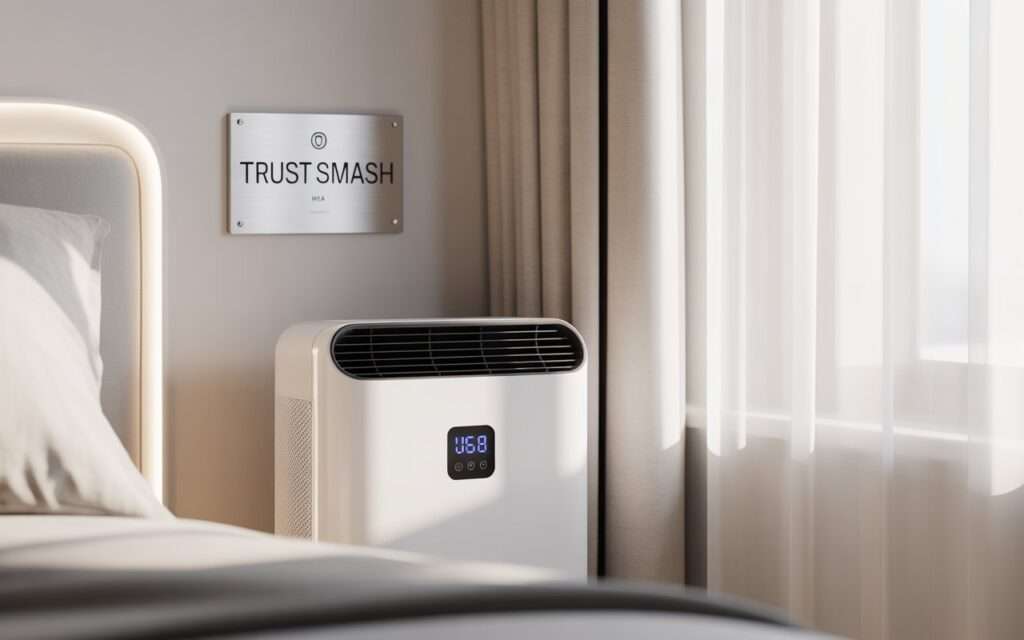
Introduction: Why Natural Allergy Relief Matters
Every year, as spring or autumn arrives, millions of people struggle with seasonal allergies. Sneezing, runny nose, itchy eyes, and general fatigue become part of daily life. These symptoms are caused by allergens like pollen, dust, and mold spores that trigger immune system overreactions.
While over-the-counter medications can offer relief, they often bring side effects like drowsiness or long-term dependency. That’s why many people now prefer natural remedy for seasonal allergies — safe, cost-effective, and better for long-term health.
In this article, we’ll explore remedies and lifestyle changes that can reduce allergy symptoms naturally. These methods are safe, easy to implement, and in line with health and wellness best practices — no harmful or haram substances included.
Understanding Seasonal Allergies
Seasonal allergies, also known as hay fever or allergic rhinitis, occur when your immune system overreacts to allergens in the environment.
Common Triggers Include:
- Tree and grass pollen (especially in spring/summer)
- Mold spores (especially in damp weather)
- Dust mites and pet dander
- Air pollution and weather changes
Symptoms to Watch For:
- Frequent sneezing
- Nasal congestion
- Itchy or watery eyes
- Post-nasal drip
- Headaches and fatigue
- Skin irritation (in some cases)
The severity of these symptoms varies from person to person, but natural remedies can significantly improve your comfort and immunity.
Natural Remedies That Actually Work

Here are tried-and-tested natural remedies that offer relief from seasonal allergies:
1. Local Raw Honey
Local honey contains traces of pollen from your region. When consumed regularly (1 teaspoon daily), it can help build tolerance to local allergens — working like a natural allergy vaccine.
Note: Honey should be raw and local. Avoid feeding honey to children under 1 year old.
2. Saline Nasal Rinse
Using a neti pot or squeeze bottle with warm saline water helps rinse allergens from the nasal cavity. This reduces congestion and cleanses the sinuses.
- Use 1-2 times daily during peak allergy seasons.
- Always use distilled or boiled water.
3. Stinging Nettle Tea
Stinging nettle is a natural antihistamine that reduces inflammation. Drinking 1–2 cups of nettle tea per day may help reduce sneezing and itchy eyes.
- Available in tea bags or loose leaf form.
- Add a bit of honey and lemon for taste.
4. Turmeric & Ginger
These ingredients are known for their anti-inflammatory properties. Turmeric contains curcumin, which can suppress allergic responses, while ginger soothes sore throats and supports immunity.
- Add to food, tea, or consume as supplements.
- Combine with black pepper to boost curcumin absorption.
5. Probiotics & Gut Health
A healthy gut is linked to a stronger immune response. Adding probiotic-rich foods like yogurt, kefir, or fermented vegetables can reduce allergic reactions over time.
- Take probiotic supplements during allergy season if needed.
6. Foods Rich in Vitamin C
Vitamin C lowers histamine levels and boosts immunity.
- Include citrus fruits, strawberries, broccoli, bell peppers, and kiwis.
- Vitamin C also acts as a natural antioxidant.
Lifestyle Changes That Boost Natural Allergy Relief

Alongside remedies, lifestyle choices can greatly influence allergy severity.
1. Keep Your Living Space Clean
- Vacuum regularly using HEPA-filtered vacuums.
- Wash bedding weekly in hot water.
- Keep windows closed during high pollen days.
Read more: Best Auto Interior Steam Cleaner Guide – steam cleaning removes allergens from fabrics and surfaces.
2. Install an Air Purifier
A HEPA air purifier traps allergens, dust, and dander. Place one in your bedroom for better nighttime breathing.
3. Change Clothes After Going Outside
Pollen clings to fabric. Change your clothes and shower after spending time outdoors, especially on high pollen days.
4. Use Essential Oils Wisely
Eucalyptus and peppermint oil in a diffuser can open nasal passages and make breathing easier. Avoid synthetic oils.
What to Avoid During Allergy Season
- Avoid outdoor activity early morning (pollen count is highest).
- Don’t hang laundry outside to dry — pollen sticks to fabric.
- Avoid processed foods that worsen inflammation (like sugary or fried snacks).
- Don’t skip sleep — weak immunity increases allergy risk.
When to See a Doctor
Natural remedies are helpful, but if:
- Symptoms worsen despite treatment
- Breathing becomes difficult
- You experience prolonged fatigue or sinus pain
Then it’s time to consult a healthcare professional or allergist for testing or personalized treatment.
Summary Table: Quick Natural Allergy Relief Options
| Remedy | Benefit | How to Use |
|---|---|---|
| Raw Honey | Builds pollen resistance | 1 tsp daily, start pre-season |
| Nettle Tea | Reduces histamine naturally | 1–2 cups per day |
| Saline Rinse | Clears allergens from nasal cavity | Use twice daily |
| Turmeric & Ginger | Anti-inflammatory immune boosters | Daily in food/tea |
| Vitamin C Foods | Strengthens immunity | Multiple servings daily |
| Air Purifier | Filters allergens indoors | Keep in bedroom |
External Resource for More Information
For scientific guidance on preventing seasonal allergy flare-ups, refer to the CDC’s Pollen Allergy Guide.
Final Thoughts
Seasonal allergies don’t have to ruin your days. By focusing on natural remedies, you can support your immune system, manage symptoms, and reduce dependence on medication.
From local honey to HEPA filters, every small habit counts. The best part? These natural solutions are free from side effects, cost-effective, and safe for all ages — perfectly aligned with a clean, halal lifestyle.
Start early, stay consistent, and you’ll notice the difference this allergy season.
FAQs
Q1: Is it safe to treat allergies naturally?
Yes, natural remedies are safe if used correctly and consistently. They are side-effect-free and effective for mild to moderate allergies.
Q2: Can I use all remedies together?
Absolutely. Combining lifestyle changes, foods, and herbal aids can give better, longer-lasting results.
Q3: What if natural remedies don’t work for me?
You may have severe or multiple allergies. In such cases, consult an allergist and ask for proper testing.